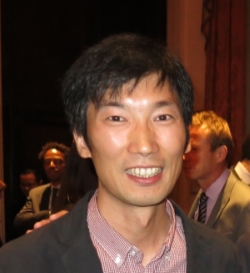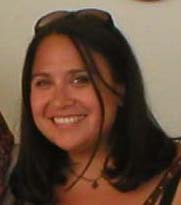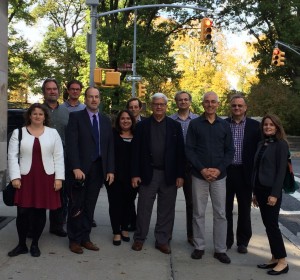 Thifhelimbilu Mulabisana is a Junior Scientist in the Geophysics Division of the Council for Geoscience in South Africa. Her day-to-day work involves the recording, processing and analysis of seismological data. The organization manages a network of over 50 seismic stations around the country and these are continuously streaming data into her office for processing. Thifhelimbilu attended the CODATA International Training Workshop in Big Data for Science in July 2016. And in July 2017 she was able to follow this by attending the School for Young Scientists “Methods of Comprehensive Assessment of Seismic Hazard”, organised by the CODATA member organisation for Russia, the Geophysical Centre of the Russian Academy of Sciences. This is the second of two blog posts in which you can read about the experiences of one young researcher from South Africa in training activities that took her from Beijing to Moscow and back.
Thifhelimbilu Mulabisana is a Junior Scientist in the Geophysics Division of the Council for Geoscience in South Africa. Her day-to-day work involves the recording, processing and analysis of seismological data. The organization manages a network of over 50 seismic stations around the country and these are continuously streaming data into her office for processing. Thifhelimbilu attended the CODATA International Training Workshop in Big Data for Science in July 2016. And in July 2017 she was able to follow this by attending the School for Young Scientists “Methods of Comprehensive Assessment of Seismic Hazard”, organised by the CODATA member organisation for Russia, the Geophysical Centre of the Russian Academy of Sciences. This is the second of two blog posts in which you can read about the experiences of one young researcher from South Africa in training activities that took her from Beijing to Moscow and back.

Thifhelimbilu (right) with friends in Moscow (Xia from China, currently doing a PhD at the State University of Moscow (left), Nguyen from Institute of Geophysics, Vietnam (middle)
As a young scientist, most of my time is spent on the internet looking for articles to read so I can better understand seismology. This is how I came across a poster about the School for Young Scientists “Methods of Comprehensive Assessment of Seismic Hazard” http://school2017.gcras.ru/, I was immediately drawn to researching further on what the school is about. I knew that I would like to attend and improve my knowledge of seismology, when I found out that the school will be devoted to the new methods recently developed for seismic hazard assessment and integration on the basis of the systems analysis of results obtained by these methods.
When I applied for the training I was worried about the cold weather in Russia. I recall when I got the email stating that I had been accepted for the training course, I went onto Google and searched how the weather is like in Russia. Being a South African who is currently based in Pretoria where winter means temperatures are low in early morning hours and at night only, unless there is a cold front, you can understand my despair with cold weather!
Of course, the weather was not the only thing I was worried about, language was also in that basket. Therefore, a couple of weeks before the training I tried to learn a few Russian words that could get me by. This evidently became a futile exercise when I landed at the airport and couldn’t read a word on the signs. I had to ask around to figure out my way to the train. I really appreciated the woman I met when we were in the queue for passport control. She had been in Russia before; therefore she knew her way and showed me where I can get the train. From there I was asking anyone I met and Russians were the friendliest to me.
The programme of the school covered exactly the reason why I became a seismologist in the first place. When I first heard about seismology, I was eager to at least figure out how we can predict earthquakes as they are by far the most dangerous natural hazard. Therefore, looking at the programme I knew that I had to go there, I had to meet people who are studying every day of their lives exactly what I had always wanted to do (see the programme and presentations at http://school2017.gcras.ru/e.materials.html).
The school exceeded my expectations; the lectures were just the kind of smart I have been yearning for the whole duration of my career as a seismologist. The work that they are doing is beyond what anyone can imagine. Can you imagine the day we can predict an earthquake? I bet you disaster management in every country will be ecstatic to that discovery.
The topics that mostly caught my eye were the identification of earthquake prone areas, calculating maximum magnitude using statistics and how the accuracy of this gets tainted due to lack of data; and the investigations on how to predict earthquakes, with the highest confidence level possible. The biggest obstacle in conducting breakthrough research in seismology is lack of data, of which the biggest known cause for this is the station coverage in most of the countries and also sharing data. The problem of data sharing is one thing which CODATA is working towards improving.
Overall, this was a brilliant trip and I would like to extend my gratitude towards the organisers of the school; the Russian Science Foundation within the framework of RSF Project “Application of systems analysis for estimation of seismic hazard in the regions of Russia” and the Council for Geoscience for funding the school and my travel to Russia, respectively.






 [
[



















